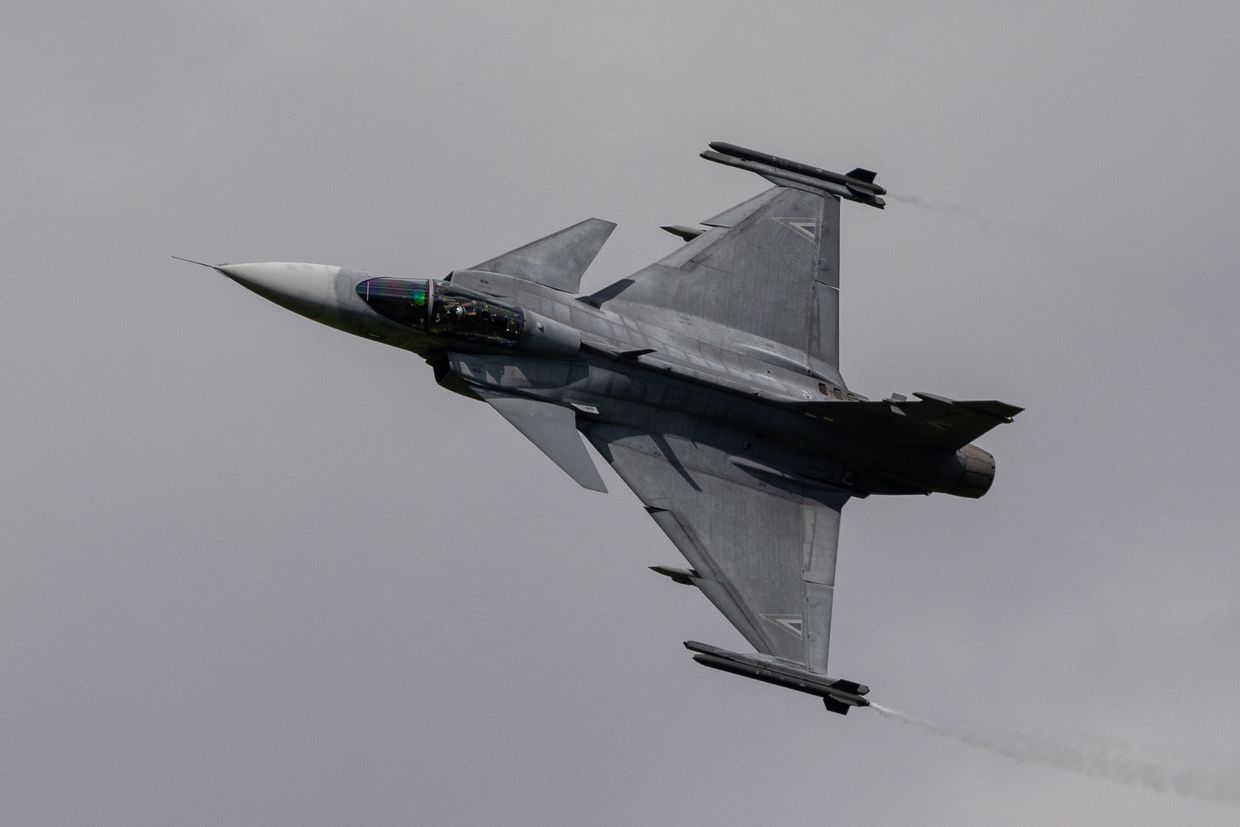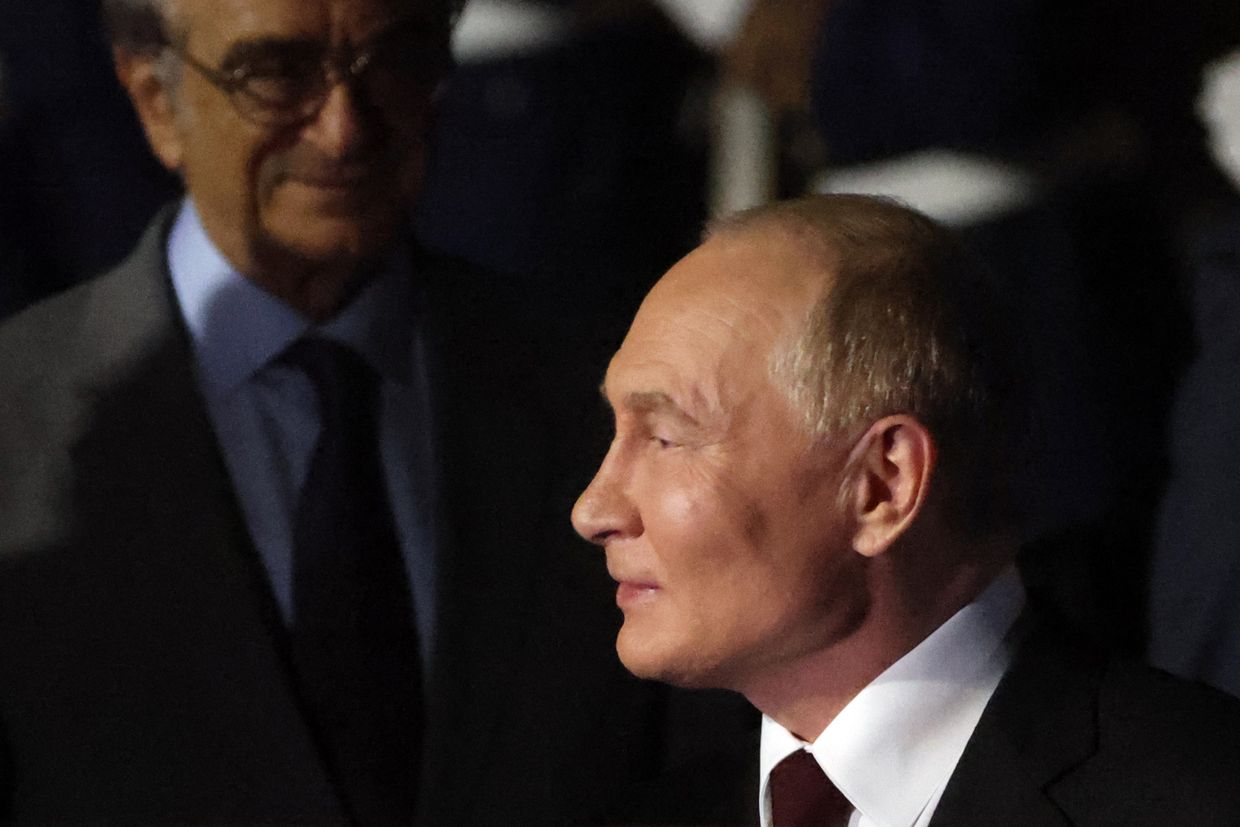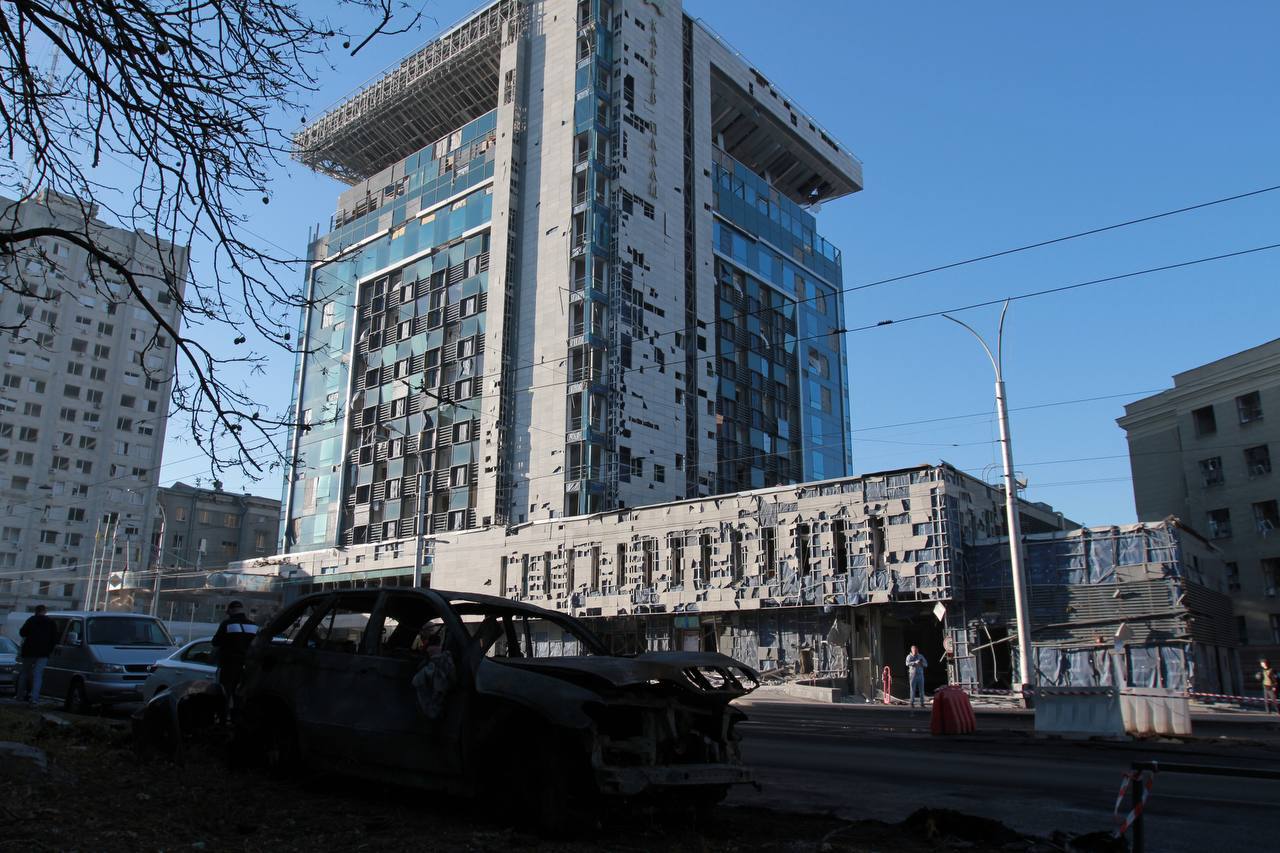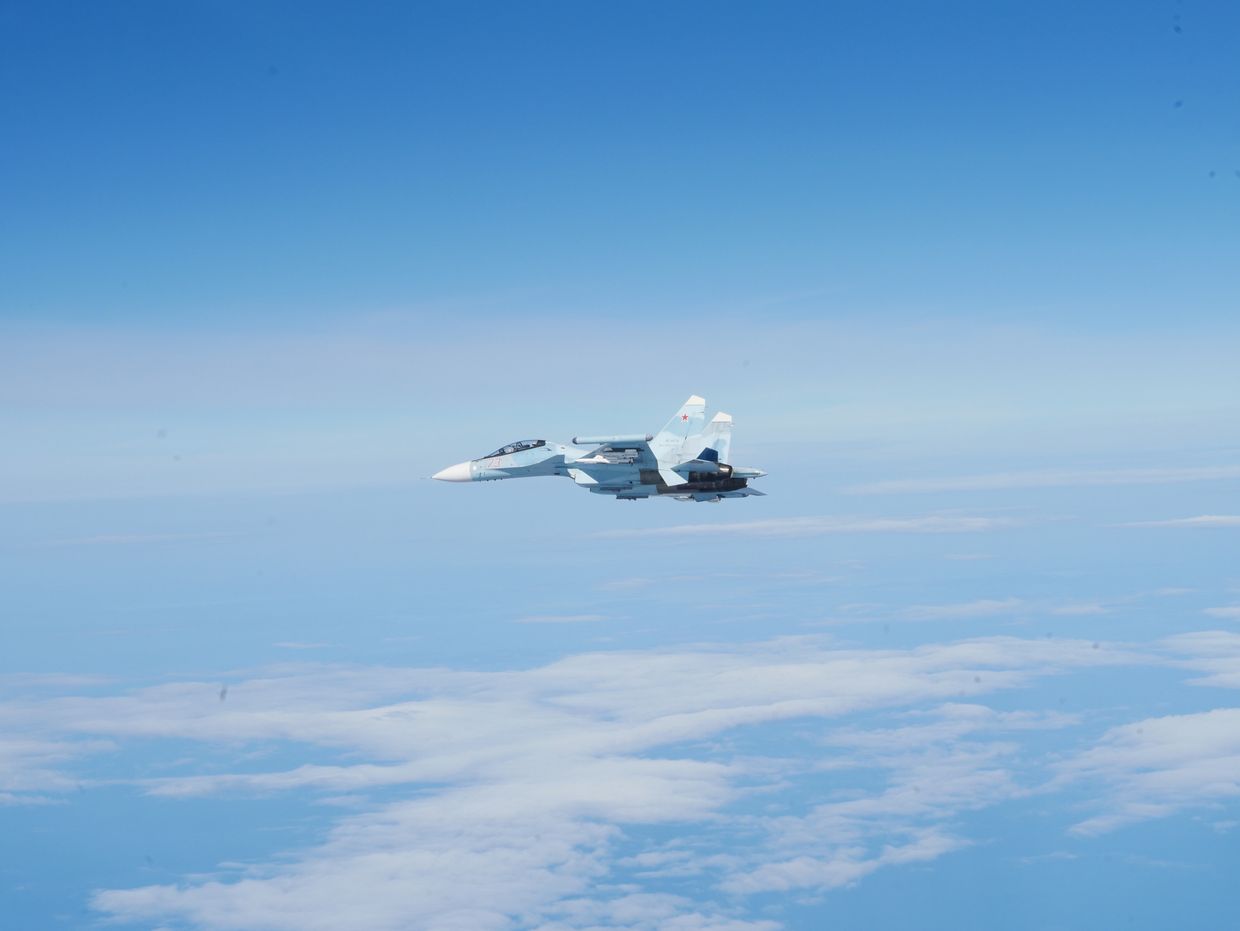Ukraine war latest: Ukraine awaits Mirage 2000 jets, in talks about Gripen, Eurofighter Typhoon

Key developments on Sept. 21-22:
- Ukraine awaits Mirage 2000 jets, in talks about Gripen, Eurofighter Typhoon, defense minister says
- Ukraine confirms overnight strikes on Russian arms depots
- Iran provided no launchers with missile deliveries to Russia, Reuters reports
- Russia preparing strikes against Ukrainian nuclear facilities ahead of winter, foreign minister says
- US may send Ukraine medium-range missiles for F-16s, Politico reports
- Zelensky on success of Kursk incursion: 'Too early to judge'
Defense Minister Rustem Umerov said Ukraine has an agreement to receive Dassault Mirage 2000 jets. He didn't provide a timeline.
According to the minister, Ukraine is in talks to acquire Swedish-made Saab JAS 39 Gripen and the Eurofighter Typhoon fighters.
"Soon we'll have results to announce," Umerov said during an interview aired on national TV on Sept. 22.
"We worked last year on pilot training, on building all the necessary infrastructure, and this year we will focus on how to scale it up enough to have an advantage over the enemy in the air," the minister said.
French President Emmanuel Macron announced on June 6 that an unspecified number of Mirage 2000-5 fighter jets would be transferred to Ukraine, but did not provide a timeline.
"Tomorrow we will launch a new cooperation and announce the transfer of Mirage 2000-5 fighter jets to Ukraine, made by French manufacturer Dassault, and train their Ukrainian pilots in France," he said during a live interview.
Ukraine confirms overnight strikes on Russian arms depots
The General Staff of Ukraine's Armed Forces confirmed on the afternoon of Sept. 21 that the Ukrainian military and security service struck two Russian arms depots overnight.
The Russian Defense Ministry claimed earlier the same day that its forces shot down and intercepted 101 Ukrainian drones overnight, while explosions were reported at ammunition depots in Krasnodar Krai and Tver Oblast.
Ukraine's General Staff confirmed a strike on the Tikhoretsk weapons depot in Krasnodar Krai, which it called one of the three largest ammunition depots in Russia and "one of the key storage facilities in the Russian military's logistics system."
"According to available information, at the time of the attack, another echelon was on the territory of the arsenal, which delivered at least 2,000 tons of ammunition, including from North Korea," reads the General Staff's report.
A Russian Podlet radar system that aided air defense of the arsenal was also destroyed in the attack, according to the Ukrainian military.
Veniamin Kondratyev, the regional governor, reported early on Sept. 21. that a drone strike in the Tikhoretsk district of Russia's Krasnodar Krai had caused detonations of "explosive objects" at an unspecified facility.
Russian air defense units intercepted two drones over the Tikhoretsk district, Kondratyev said. "The falling debris of one of them caused a fire that spread to explosive objects. A detonation began."
Local authorities have evacuated 1,200 residents from the area near the blast, Kondratyev said later the same day. No casualties have been reported.
Hours after the attack, Andrii Kovalenko, the head of Ukraine's state-run Center for Countering Disinformation, wrote that a depot was "demilitarized" in Russia's Tikhoretsk district and published videos allegedly showing the aftermath of the strike.
North Korea-made KN23 missiles, artillery shells, and ammunition for Smerch rocket launchers were stored in the Tikhoretsk depot, Kovalenko added.
Ukraine's General Staff also confirmed a strike on an ammunition depot in Tver Oblast that was earlier reported by Russian Telegram channels.
The Security Service of Ukraine (SBU) hit the 23rd arsenal of the Russian Defense Ministry's Main Artillery Directorate near the village of Oktyabrsky in Tver Oblast, according to the General Staff.
The local government in Tver Oblast reported that an unspecified number of drones were shot down in the region but did not disclose any details on the consequences of the attack.
The facility is located near a weapons depot in Toropets, one of Russia's largest arsenals, that was attacked by Ukrainian drones on Sept. 18.
Iran provided no launchers with missile deliveries to Russia, Reuters reports
Iran did not include mobile launchers along with its delivery of ballistic missiles to Russia, Reuters reported on Sept. 21, citing three sources with knowledge of the matter.
Russia and Iran have deepened their military and political cooperation since the start of the full-scale invasion of Ukraine in February 2022. Tehran has provided Moscow with thousands of Shahed kamikaze drones used in attacks against Ukraine.
After months of contradictory reports, U.S. Secretary of State Antony Blinken confirmed on Sept. 10 that Russia had received deliveries of Fath-360 close-range ballistic missiles from Iran.
Iran denied it had delivered ballistic missiles to Russia, calling the reports "psychological warfare."
There has been no official confirmation that Russia has used the missiles against Ukraine to date.
A European diplomat, a European intelligence official, and a U.S. official told Reuters that Iran did "not supply launchers with the Fath-360 missiles, raising questions about when and if the weapons will be operational." The officials spoke to Reuters on condition of anonymity.
The European intelligence official told Reuters they did not expect Iran to provide the launchers.
Expert analysis suggests this may be because Russia may modify trucks to carry the missiles. One expert told Reuters that the launchers typically used by Iranian forces may not be robust enough to operate in winter conditions in Ukraine.
Another theory is that Iran is withholding the launchers for the time being to allow for "space for new talks with Western powers on easing tensions," Reuters said.
Iranian President Masoud Pezeshkian and other Iranian officials are expected to meet with European officials on the sidelines of the upcoming U.N. General Assembly in New York.
Ukraine, the E.U., and the U.S. introduced more sanctions against Iran in the wake of the confirmation of the missile delivery to Russia.
The confirmation of the deliveries marked a "further escalation of Iran's military support to Russia's war of aggression against Ukraine," the U.K., France, and Germany said in a joint statement.
The three countries said they have "privately and publicly been clear that we would take new and significant measures against Iran if the transfers took place."
Russia preparing strikes against Ukrainian nuclear facilities ahead of winter, foreign minister says
Moscow is preparing to carry out strikes against Ukrainian nuclear facilities ahead of winter, Ukraine's Foreign Minister Andrii Sybiha said on Sept. 21, citing Kyiv's intelligence data.
The possible targets include open distribution devices at nuclear power plants and transmission substations, "which are essential for the safe functioning of the nuclear energy system," according to Sybiha.
"Damage to these facilities would create a high risk of a nuclear incident that will have global consequences," Sybiha said in a statement published on social media.
Ukraine's special services informed Kyiv's partners and the International Atomic Energy Agency (IAEA) about the possible threat.
"Russia is the only country that seized a nuclear power plant in Europe, blackmailing the world," the minister added.
The Zaporizhzhia Nuclear Power Plant, Europe's largest nuclear power station, has been under Russian occupation since March 2022. Its position near the front line has led to heightened nuclear safety risks throughout Russia's full-scale war.
The Ukrainian power grid has been heavily damaged during Russian aerial attacks, and it remains unclear how much of the infrastructure can be repaired before the temperatures drop.
Energy deficits necessitated rolling blackouts during the summer and autumn, with some officials warning that Ukrainians may have electricity for 6-7 hours per day in the upcoming winter.
US may send Ukraine medium-range missiles for F-16s, Politico reports
The United States may send Ukraine medium-range missiles for F-16 fighter jets as part of its latest military aid package, Politico reported on Sept. 20, citing unnamed U.S. officials.
The U.S. is expected to announce a $375 million military assistance package for Kyiv next week, Reuters reported earlier on Sept. 20. The package represents the largest tranche of U.S. military aid for Ukraine since May 2024.
A medium-range glide bomb known as the Joint Standoff Weapon (JSOW) might be included in the new package, officials told Politico. The missile can cover a distance of over 110 kilometers (70 miles).
The contents of the package have not been finalized and are subject to change, the officials said.
Reuters earlier reported that the U.S. would likely send patrol boats, ammunition for high-mobility artillery rocket systems (HIMARS), artillery shells, and spare parts as part of the latest round of military assistance.
The JSOW has a shorter range than U.S.-made Army Tactical Missile System (ATACMS), long-range missiles that can travel up to 300 kilometers (190 miles). Ukraine has urged Washington to grant permission for Ukrainian troops to use ATACMS to strike military targets located deep inside Russian territory.
While JSOW missiles won't accomplish that goal, the 70-mile range would allow F-16 pilots to keep their distance from the front lines and Russian air defense systems.
Ukraine received its first U.S.-made fourth-generation jets in late July and has already deployed F-16s to intercept Russian mass aerial attacks. One aircraft crashed during such a mission, marking Ukraine's first F-16 loss.
'Too early to judge' — Zelensky on success of Kursk incursion
President Volodymyr Zelensky said on Sept. 22 that the Kursk incursion had delivered some success, primarily diverting Russian troops from other parts of the front line.
But, when pressed to say whether the operation was a success, the president told The New Yorker that it was "too early to judge."
"It has slowed down the Russians and forced them to move some of their forces to Kursk on the order of 40,000 troops. Already, our fighters in the east say that they are being battered less frequently," Zelensky said in the interview.
"I'm not saying it's a resounding success or will bring about the end of the war or the end of (Russian President Vladimir) Putin. What it has done is show our partners what we're capable of," the president added.

















